Table of contents

Nothing is more beautiful than an environment decorated with a plant. Besides adding beauty and charm to the place, they can also provide other benefits, such as exhaling a pleasant essence to perfume the room or even rid the air of possible impurities.
In addition, the presence of a plant inside your home allows direct contact with nature, even in closed environments, helping to relax. Growing a plant in your home can also provide good moments, since it demands certain care, and can be a therapeutic practice.
As personal garden Carla Formanek, owner of Charlotte na Varanda explains, the practice of using plants in interior decoration is on the rise due to some recent studies that prove their benefits to our health: "Many of them are great 'air cleaners', neutralizing or reducing various toxins that contaminate the air, besides acting on the humidity of the environment,increasing it or decreasing it".
According to the professional, growing a plant indoors is important especially for those who live in big cities or apartments, due to the difficulty of contact with nature.
Among the most common pollutants found in the ambient air, which most plants can filter out, are formaldehyde, trichloroethylene, xylene, ammonia, and benzene:
1. aloe vera
It can reach up to one meter in height, and is ideal for growing in pots. Pruning can keep its growth under control, but it must be done carefully, since its leaves release a sticky, bitter juice.
Also known as aloe vera, the plant also has the advantage of having medicinal uses, being able to have its pulp applied on light burns or first-degree burns to relieve the discomfort, besides treating scalp problems. To stay healthy, aloe vera needs little water and a lot of sunshine. An interesting point is that the plant even alerts when the air is too polluted:small brown dots appear on its beautiful green leaves.
2. peace lily
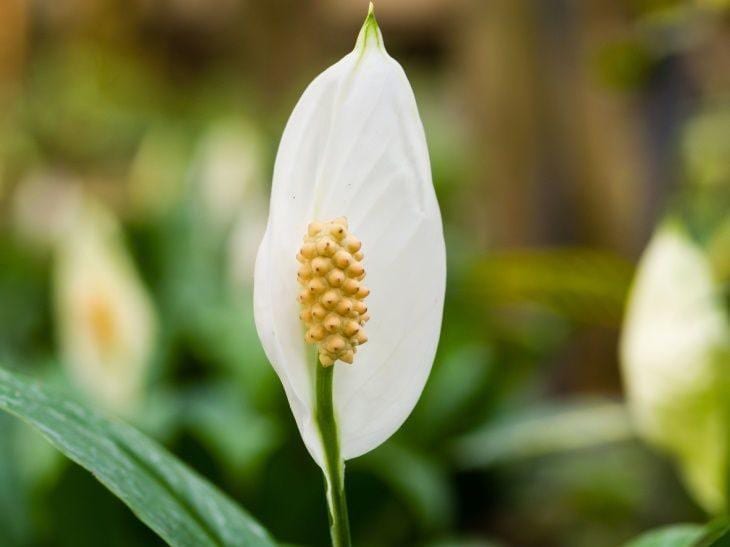
A species with beautiful flowers, the cultivation of the peace lily requires little light and little watering. According to research, it is capable of filtering the five most toxic gases found in the environment. The plant can be grown in both smaller and larger pots, and has a long life span.
The warning goes to those who have pets inside the residence: this is a toxic plant and should be kept away from your little friends. Preferring tropical and subtropical climates, it should not be exposed to draughts for too long.
3. orchids
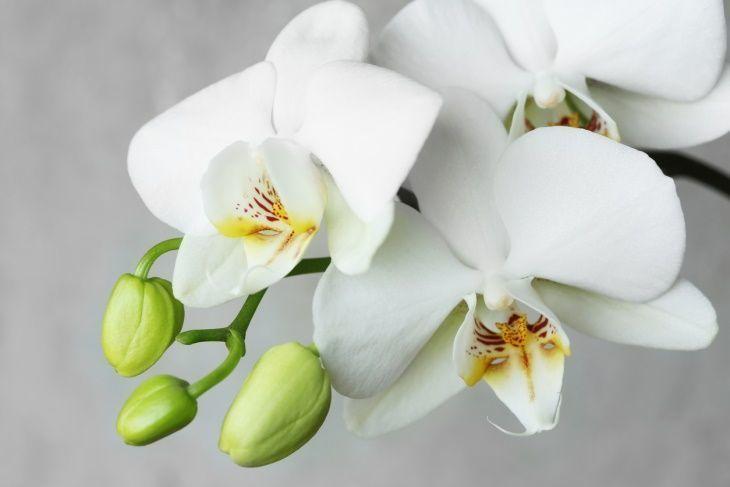
As the professional reveals, this species filters xylene, which is present in glues and paints. "In addition, they perform the oxygen exchange during the night, being a great option to keep in the room," she explains.
The plants need little exposure to the sun: four hours are enough to keep them healthy.
4. Imbé
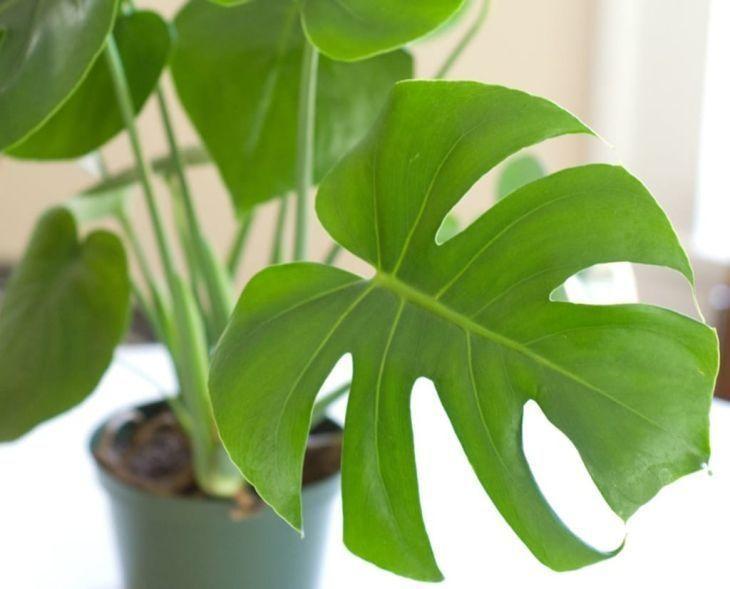
Originally a climbing plant, the imbe can be grown in large pots as long as it is pruned regularly. This plant has heart-shaped foliage, with a bright green coloration. It is best grown in composted soil, and is not recommended for homes with pets.
It can be placed both in the shade and in the half shade, but if exposed to the sun for too long its leaves can turn yellow. According to Carla, this plant has the ability to eliminate all kinds of volatile compounds from the air.
5. rafis palm
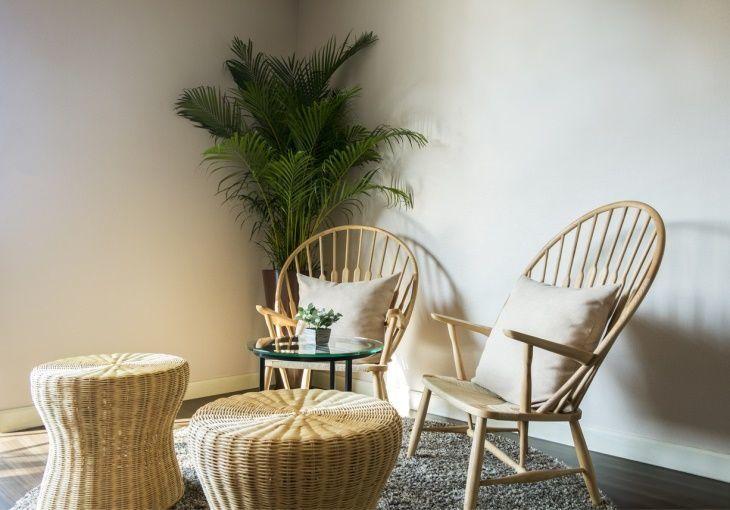
Originally from Asia, the rafis is also known as palm lady. With high growth, it can reach up to 3 meters, and must be pruned periodically to limit its height. The plant prefers areas with medium temperatures and without direct sunlight.
The personal garden reveals that this species has the function of eliminating formaldehyde, xylene, and ammonia from the air, compounds present in cleaning materials, fabrics, and hair dyes.
6. fern
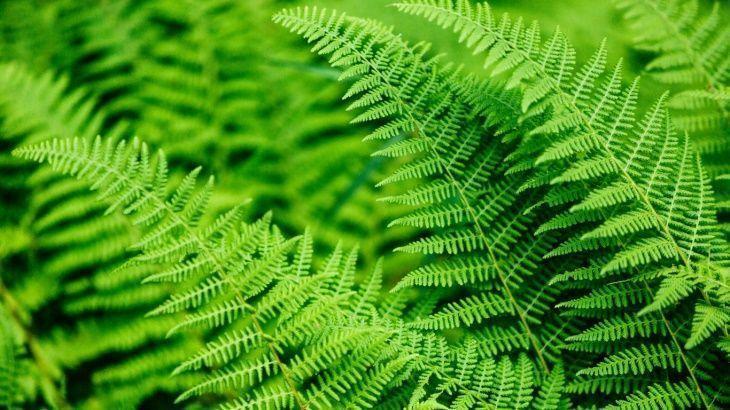
"This species needs a more humid environment and indirect light, escaping from the rules of most indoor plants, besides needing to be watered more frequently", Carla reveals.
Besides being great at removing impurities from the air, there are studies that suggest that ferns are even capable of removing arsenic and mercury from the soil. Able to withstand low winter temperatures, it is one of the most commonly grown plants in homes across the country.
7. silver shield
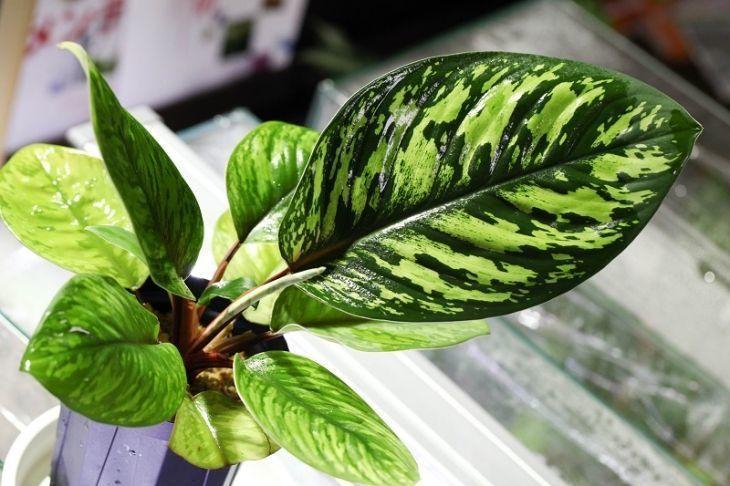
A species from the Araceae family, Homalomena wallisii, is very similar to the old known "me-nobody-pod". It is a smaller plant that can be grown in small pots, with creamy green leaves.
With the power to absorb ammonia, toluene, and xylene, the silver shield needs a more humid environment, demanding frequent watering. The warning is for cat lovers: this plant is extremely toxic for these animals.
8. dracaena
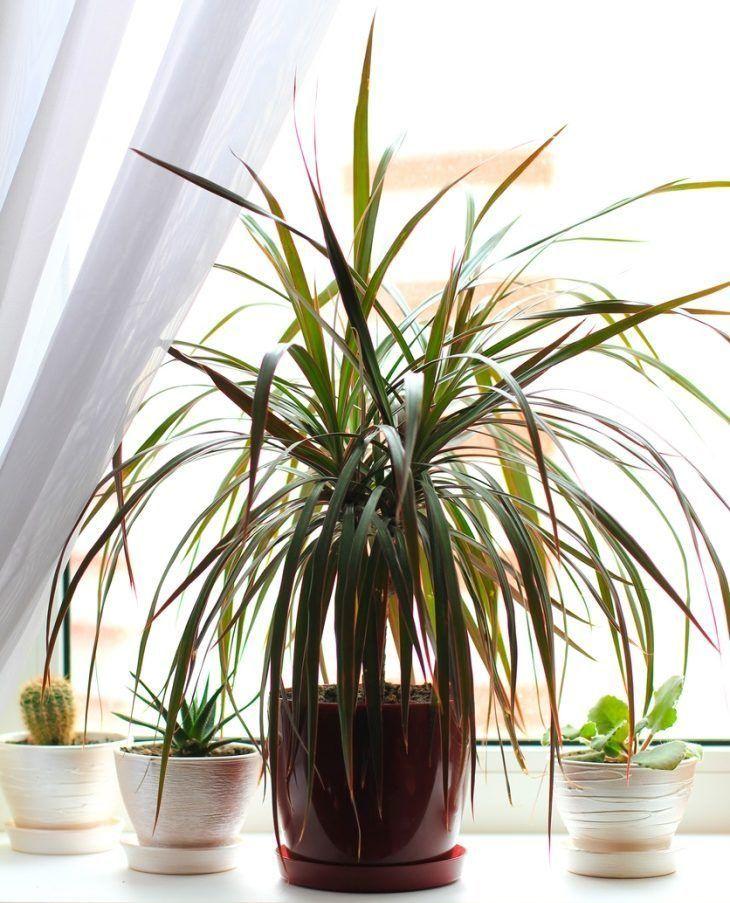
Fighting the pollutants present in varnishes and oils, the dracaena prefers well-lit places, and needs to be watered with mineral water, since street water contains high levels of fluoride.
See_also: Luxury and simplicity: 40 couple bedrooms with neutral tones to inspire youA tall plant with multiple thin trunks, its leaves are pointed and long, colored green or pink, and can compose beautiful arrangements. Among the toxins it fights, we can mention ammonia, toluene, formaldehyde, benzene, and trichloroethylene.
Ficus Benjamina
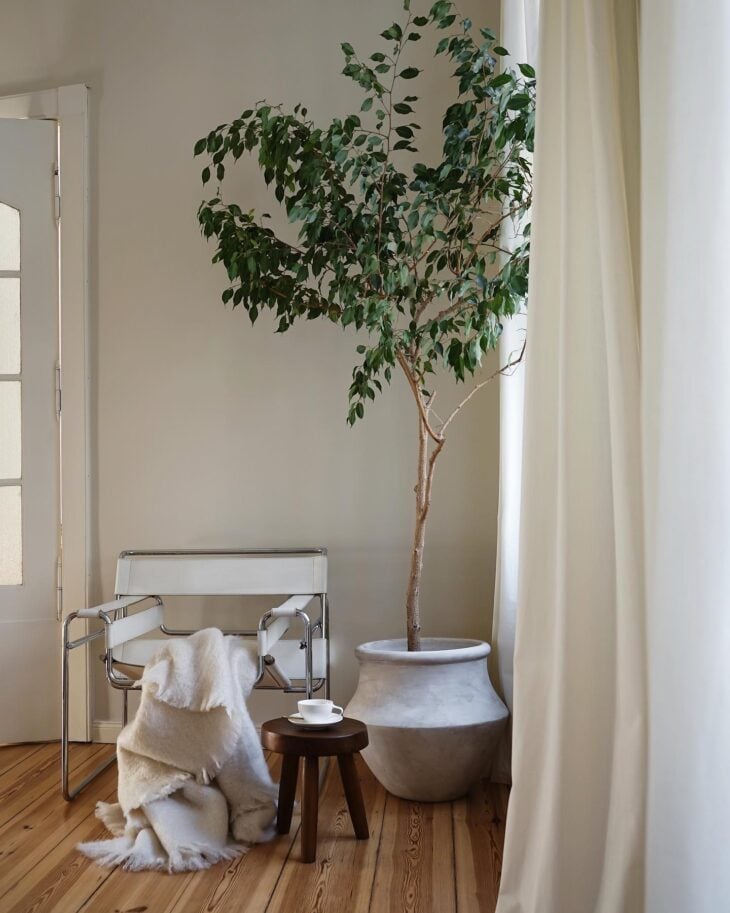
This species can be grown indoors while young, living well with an indirect incidence of light. With its grayish stem it can reach up to 30 meters in height. A good option is to grow it with the bonsai technique to keep its rapid growth under control.
Since it absorbs formaldehyde, toluene, and xylene, it should be avoided by those with pets, since its sap is toxic, and it also causes allergies and skin irritations.
10. sword of St. George
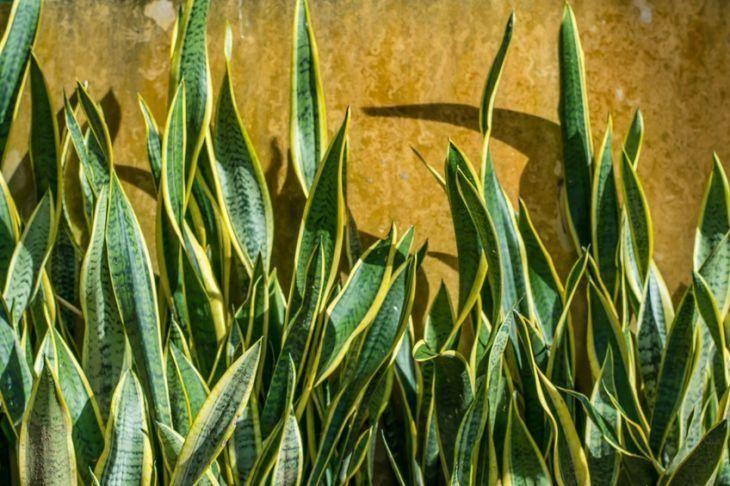
"This plant has the ability to absorb formaldehydes released by wood, synthetic fabrics, and carpets, and just like orchids, they release oxygen at night," Carla teaches.
Versatile, the St. George sword adapts to environments with different temperature and lighting conditions, and does not need frequent watering. Among the compounds it filters are trichloroethylene, toluene, xylene, benzene, and formaldehyde.
See_also: Refrigerator wraps: 40 ideas for a perfect finishWhether to beautify the residence, bringing more charm and enabling the contact with nature even indoors, or used to purify the air, ridding us of toxic compounds, choose your favorite species and bet on its benefits!


